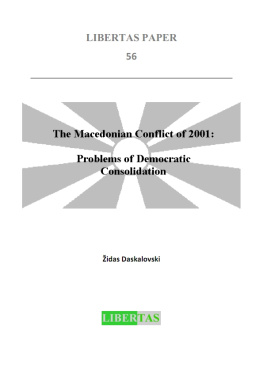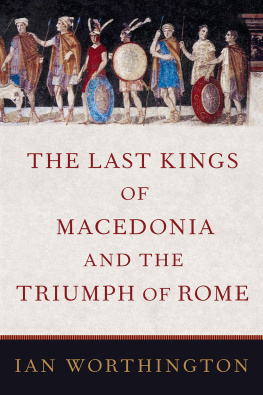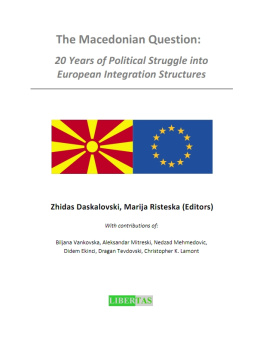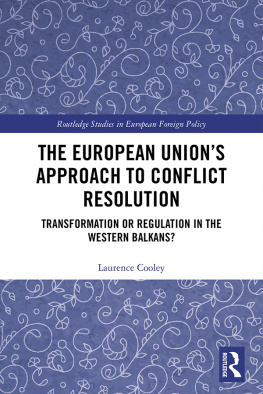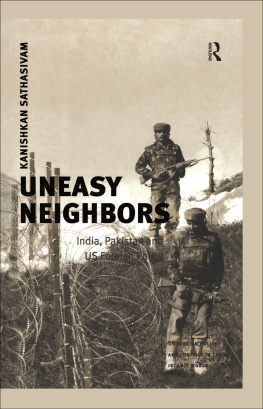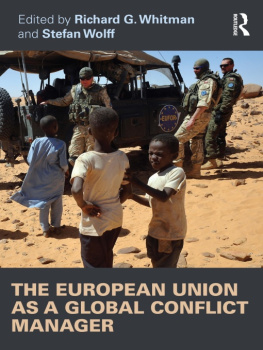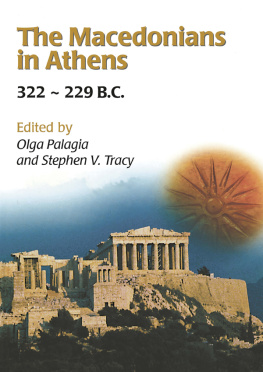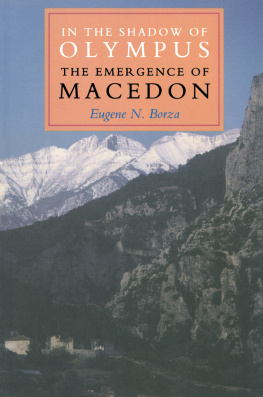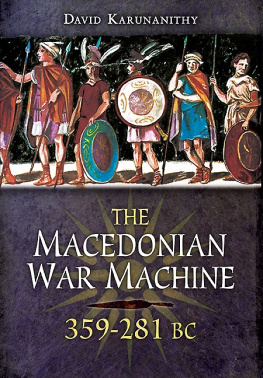Die Deutsche Bibliothek
Ein Titeldatensatz fr diese Publikation
istbeiderDeutschenBibliothekerhltlich
Sindelfingen, July 2004 (version I / July 2004)
LIBERTAS - Europisches Institut GmbH,
Lindenweg 37, 72414 Rangendingen, Germany
Tel.: +49/7471/984996-0
Fax: +49/7471/984996-19
eMail :
Internet: www.libertas-institut.com
ISBN 978-3-921929-16-2 (print)
ISBN 978-3-946119-39-5 (epub)
ISBN 78-3-946119-40-1 (MobiPocket)
idasDaskalovskiis among the most hopeful Macedonian political scientists, with prominent expertise in the fields of political analyses, democratisation, multicultural issues, conflict prevention and conflict management. He holds a PhD from the Political Science Department, Central European University, and was recipient of various fellowships including the CEU/LordDahrendorfFellowship, the School of Slavonic and East European Studies Macedonian Studies Fellowship, and the SSRC-CSS Fellowship. Among other activities, he is among the leaders of Centre for Research and Policy Making (CRPM), one of the few think-tanks on the Balkan, in Skopje/Macedonia, and works at present as researcher of WSP International, an anti-conflict organisation in partnership with the United Nations. He also teaches at Tetovo University. This script has been finished in 2003.
Among his many publications is Florian Bieber/idasDaskalovski, Understanding the War in Kosovo, London: Frank Cass, as well as many chapters in other books. He contributed to many periodicals, among them Global Review ofEthnopolitics, Global Security and Cooperation Quarterly, Altera [in Romanian], Romanian Journal of Political Science, Critical Review of International Social Political Philosophy, Journal ofEthnopoliticsand Minority Issues in Europe, International Journal of Group and Minority Rights,Slovo,Balkanistika, Oxford International Review, Central European Review, East European Constitutional Review,Balkanologie, Rec [in Serbian], Southeast Europe Review,Makedonika, etc.
CONTENTS
Introduction
Having declared independenc e on 8 September 1991, Macedonia, the only ex-Yugoslav republic to secede non-violently, has been considered one of the bright spots in former Yugoslavia. Since gaining independence from Yugoslavia in 1991 Macedonia was influenced by an extremely unfavorable regional environment: a UN embargo against the northern neighbor FR Yugoslavia (the main t rading partner, Serbia and Montenegro), a Greek trade blockade, the war in Bosnia and, later on, by the Kosovo crisis and the NATO military action against Milosevics regime. However, the Macedonias primary challenge of building a state has been to accomm odate the ethno-political ambitions of Macedonians (66 percent of the population, according to the 1994 census) and ethnic Albanians (23 percent).
During the 1990s Macedonian political elites clashed with their ethnic Albanian counterparts over the basic idea behind the concept of the state. Various elements in the constitution, the census taking, the laws on education, local self-government, and public display of national minority symbols, the ethnic make-up of the police, army, as well as the public adm inistration, were all contested by Macedonian Albanians in this period. These are all constituent parts of the idea behind the Macedonian republic, the fundamentals, which in all liberal states are accepted by the general public or at least by the principa l sectors within. With a major segment of the population challenging the very foundations of the state, Macedonia, before the 2001 Ohrid Framework Agreement and the subsequent adoption of the amendments to the 1991 constitution could not consolidate its de mocracy. While Macedonians have insisted on a unitary nation-state Macedonian, Albanians have refused to be considered an ethnic minority in a Macedonian nation-state and have advocated for official bi-nationalism. Although Macedonia recognized the rights of national minorities and promoted pluralism in the media, native-language education, minority civil society organizations, and interethnic power sharing in the national government living standards sank as unemployment soared. Under such circumstances the political transformation was formulated as a zero-sum game, pitting ethnic Albanian grievances against Macedonian fears for their countrys security and integrity.
Hailed as an exemplary case of successful inter-ethnic co-operation, Macedonia surprise d analysts and diplomats when it almost surged into a full-blown civil war in the first half of year 2001. Led by Ali Ahmeti , the previously unknown National Liberation Army (NLA) was a motley group of former Kosovo Liberation Army fighters from Kosovo and Macedonia, Albanian insurgents from the Southeast Serbian regions of Preshevo , Bujanovac and Medvedja , young Albanian radicals and nationalists from Macedonia, and foreign mercenaries. From February to August 2001, the NLA organized an armed insurrection against the Macedonian government. Following a prolong warfare and with emotions running high among government officials and ordinary Macedonians and Macedonian Albanians, the danger of civil strife was real. The international community, led by the Europe an Union, reacted swiftly bring to life the Ohrid Framework Agreement and the pacifycation of the NLA. Thus, in contrast to the wars in Croatia and Bosnia and Herzegovina, where its action was sordidly belated, during the 2001 Macedonian conflict the EU pr oved capable in close cooperation with the U.S. and the Organisation for Security and Cooperation in Europe (OSCE) to use effectively soft foreign policy instruments to prevent another Balkan bloodshed.
The first part of this study argues that the Macedo nian consolidation of democracy has not been achieved in the last decade or so since independence due to the unresolved stateness issue. Using insights from Juan Linzs and Alfred Stepans discussion with reference to the importance of the interplay betwee n democratization and nationalism for democratic consolidation and outlaying a detailed chronology of major events in Macedonia during the period in question I will point out how the stateness problem has been the fundamental issue for this countrys failu re to consolidate democracy.
According to Linz and Stepan , a country is democratically consolidated when, in one phrase, democracy is the only game in town (Linz and Stepan 1996:5). Behaviorally, democracy is the only game in town when no significant p olitical groups seriously attempt to overthrow the democratic regime or secede from the state, while attitudinally, consolidated democracy is achieved when, even in the face of severe political and economic crises, the overwhelming majority of the people believe that any further political change must emerge from within the parameters of democratic formulas (ibid.). Finally, constitutionally, democracy becomes the only game in town when all the actors in the polity become habituated to the fact that poli tical conflict will be resolved according to the established norms and that violations of these norms are likely to be both ineffective and costly (ibid.). Within the category of consolidated democracies there is a continuum from low to high quality democ racies. Consolidation of a democratic regime in multiethnic countries is more difficult than in more homogenous ones. The main problems for achieving consolidation in plural societies arise due to a stateness problem, namely the disputes over the boundar ies of the state, its character, the question regarding who has a right to citizenship, etc. In fact, the more the population of the territory of the state is comprised of plurinational , lingual, religious, or cultural societies, the more complex politics becomes because an agreement on the fundamentals of a democracy will be more difficult (Linz and Stepan 1996: 29). The opposite is also accurate. Conflicts are reduced when empirically almost all the residents of a state identify with one subjective ide a of the nation, and that nation is virtually contiguous with the state (Linz and Stepan 1996: 25). The congruence between the polity and the demos facilitates the creation of a democratic nation-state and is therefore one of the conditions for successful consolidation of democracy.

